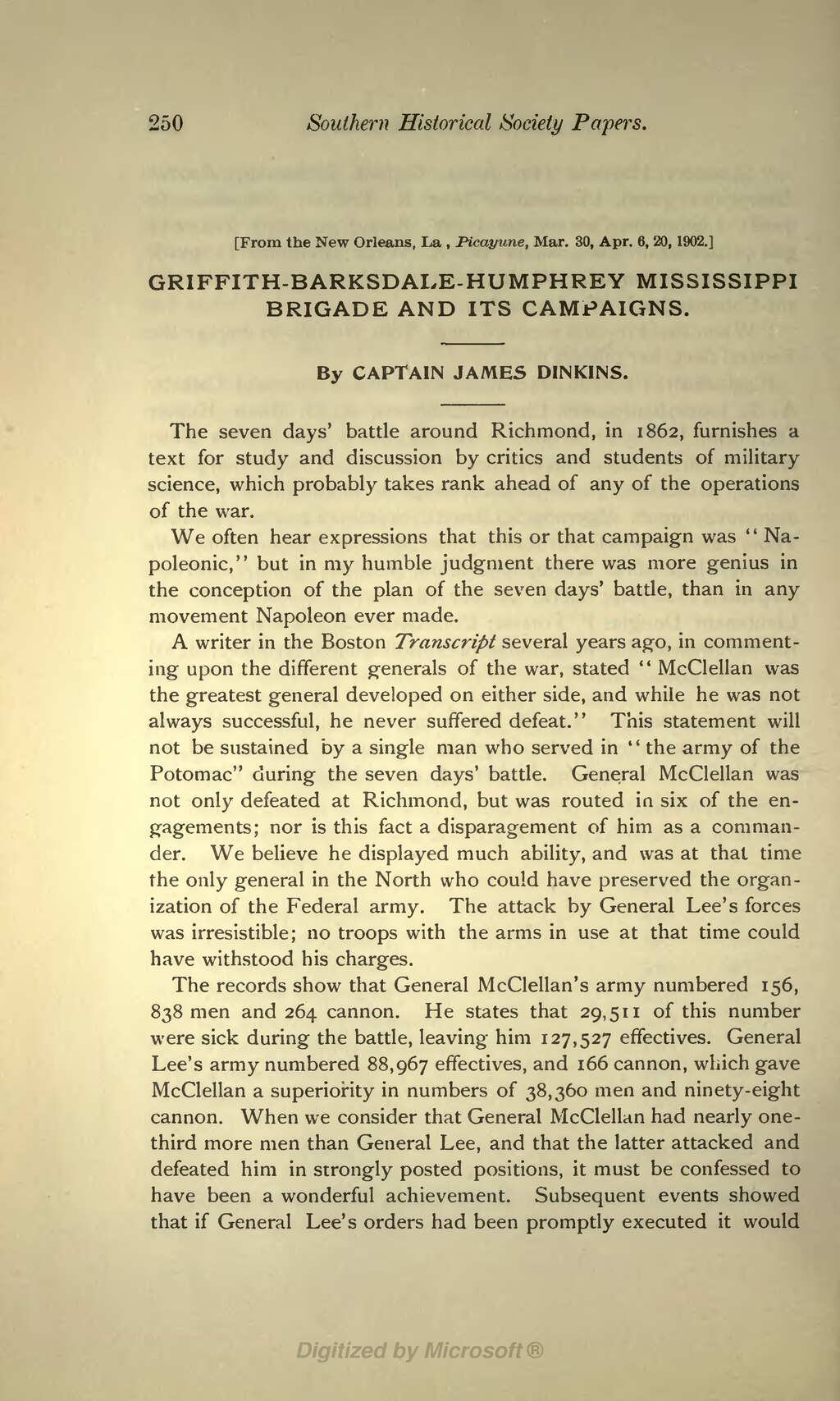250 Southern Historical Society Papers.
[From the New Orleans, La , Picayune, Mar. 30, Apr. 6, 20, 1902.]
GRIFFITH-BARKSDALE-HUMPHREY MISSISSIPPI BRIGADE AND ITS CAMPAIGNS.
By CAPTAIN JAMES DINKINS.
The seven days' battle around Richmond, in 1862, furnishes a text for study and discussion by critics and students of military science, which probably takes rank ahead of any of the operations of the war.
We often hear expressions that this or that campaign was " Na- poleonic," but in my humble judgment there was more genius in the conception of the plan of the seven days' battle, than in any movement Napoleon ever made.
A writer in the Boston Transcript several years ago, in comment- ing upon the different generals of the war, stated " McClellan was the greatest general developed on either side, and while he was not always successful, he never suffered defeat." This statement will not be sustained by a single man who served in " the army of the Potomac" during the seven days' battle. General McClellan was not only defeated at Richmond, but was routed in six of the en- gagements; nor is this fact a disparagement of him as a comman- der. We believe he displayed much ability, and was at that time the only general in the North who could have preserved the organ- ization of the Federal army. The attack by General Lee's forces was irresistible; no troops with the arms in use at that time could have withstood his charges.
The records show that General McClellan's army numbered 156, 838 men and 264 cannon. He states that 29,511 of this number were sick during the battle, leaving him 127,527 effectives. General Lee's army numbered 88,967 effectives, and 166 cannon, which gave McClellan a superiority in numbers of 38,360 men and ninety-eight cannon. When we consider that General McClellan had nearly one- third more men than General Lee, and that the latter attacked and defeated him in strongly posted positions, it must be confessed to have been a wonderful achievement. Subsequent events showed that if General Lee's orders had been promptly executed it would
